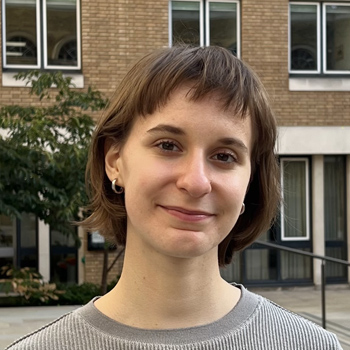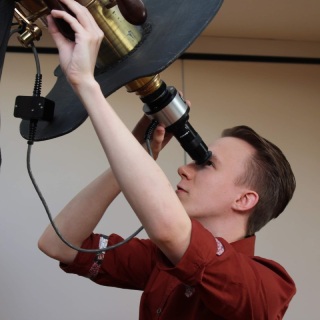Research Projects
2023
Simran Dave

Project title: The Search for Dark Matter with the world-leading LZ Experiment
Dakshesh Kololgi

Connecting Galaxies to Large Scale Structure Environment with Minimum Spanning Trees
Febian Febian

Machine Learning and FPGA optimisation for proton beam therapy Proton therapy
Weibin Chen

Joseph Egan

Constraining Beyond Standard Model physics by reinterpreting published collider measurements
Jools Clarke

Edoardo Critelli

Jason Ran

Elliot Dable

Wei Sheng Lai

Henry Aldridge

Laura Aguilar

2022
Callum Duffy

Noah Clarke Hall

Deep learning the shape of the Higgs potential with ATLAS at the LHC
Max Hart

Machine learning techniques to improve track reconstruction at the ATLAS experiment at the LHC
Nathan Higginbotham

Determining the Neutrino Mass from Cyclotron Radiation Emission Spectroscopy
Paul Nathan

Anomaly Detection in DESI Spectra using Machine-Learning Dimensionality-Reduction Techniques
Alicja Polanska

Machine learning assisted model comparison with normalizing flow
Nikita Pond

Alex Saoulis

James Ray

Exploiting Galaxy Images with Deep Learning and Explainable AI
Tara Tahseen

Using deep learning to model complex chemistries of exoplanet atmospheres
Antonia Vojtekova

Exploring exoplanetary atmospheres with a combination of machine learning
2021
Jackson Barr

Ross Dobson

Unveiling the exoplanet population with novel data science techniques
Philippa Duckett

Elizabeth Guest

Machine learning of pressure dependence of molecular line profiles for Exoplanets
Thandikire Madula

Joshua Williamson

Field-level galaxy biasing from DES Y3 weak lensing mass and galaxy maps
Ziyang Yan

2020
Prabh Bhambra
Marin Mlinarevic

Patricio Reller Garcia

Data-intensive and high-performance computing applied in a multidisciplinary research stage
Arianna Saba

From Space to Ground: Characterising Exoplanet Atmospheres at Low and High Spectral Resolutions
Federico Speranza

Andrius Vaitkus

Yuwen Zhang

2019
I Cheng (Matthew)

AI-Assisted Detection and Plasma Processes of Saturn's Magnetospheric Boundaries
Graham Van Goffrier

Improved Nuclear Matrix Elements for Neutrinoless Double-Beta Decay
Nisha Lad

Nikolay Walters
Samuel Wright

 Close
Close

